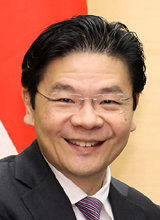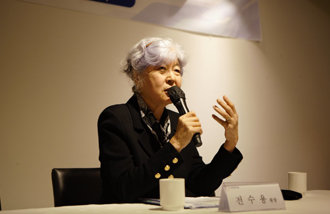Singaporean PM earns 4 times US Pres.’s salary
Singaporean PM earns 4 times US Pres.’s salary
Posted June. 20, 2024 07:46,
Updated June. 20, 2024 07:46

The disparity in political leaders' salaries is stark. Singapore Prime Minister Lawrence Wong's annual salary of 2.2 million Singaporean dollars stands at the top, a figure that is more than four times the 400,000 U.S. dollars U.S. President Joe Biden earns. Australian Prime Minister Anthony Albanese's annual salary of 607,490 Australian dollars (about 405,000 U.S. dollars) also surpassed that of the U.S. president for the first time, underlining the global variation in political remuneration.
According to Sky News on Wednesday, Australian authorities have set a 3.5 percent wage increase for federal government employees for fiscal year 2025 (July this year to June next year). While this is lower than the 4.1 percent average wage increase across Australia as a whole, the government explained that increasing the compensation of public servants is necessary to attract talented people.
Starting next month, Albanese's annual salary will increase from 569,500 Australian dollars (380,000 U.S. dollars) to 607,490 Australian dollars. This is the first time an Australian prime minister has ever been paid more than 600,000 Australian dollars, over six times the average Australian annual salary (98,000 Australian dollars or 65,400 U.S. dollars).
In contrast, the U.S. president's salary has been frozen for 23 years after doubling from 200,000 to 400,000 dollars in 2001.
Singapore is known for its high salaries, not just for its prime minister, but for its entire civil service. As a result, Prime Minister Wong's salary tops the list of world leaders. Most ministers are also known to earn more than 1.1 million Singaporean dollars (814,660 dollars).
Premier Wong’s salary is nearly three times more than the world's second-ranked leader, Swiss President Viola Amherd, who earns 530,000 Swiss francs (about 598,936 U.S. dollars). The seven-member Federal Council serves Switzerland's presidency through a one-year rotation. There is also a large gap with President Yoon Suk Yeol's annual salary (254.93 million won or 184,700 U.S. dollars), which the Korean Ministry of Personnel Management released.
With this raise, the annual salary of an Australian federal lawmaker has also risen to 236,600 Australian dollars (about 157,895 U.S. dollars) to rank second globally after the U.S. U.S. congressmen have been paid 174,000 dollars since 2009. South Korean lawmakers earn 157 million won (114,000 U.S. dollars) per year.
이청아 기자 clearlee@donga.com
Headline News
- US: Japan will double its defense budget, and so should S. Korea
- Trump's win could present opportunities for S. Korean defense firms
- ‘Don’t expand the war in Ukraine,’ Trump tells Putin
- Korean fencing men's sabre wins World Cup team event
- Yoon who should take the lead and reinvent for the second half of his term







